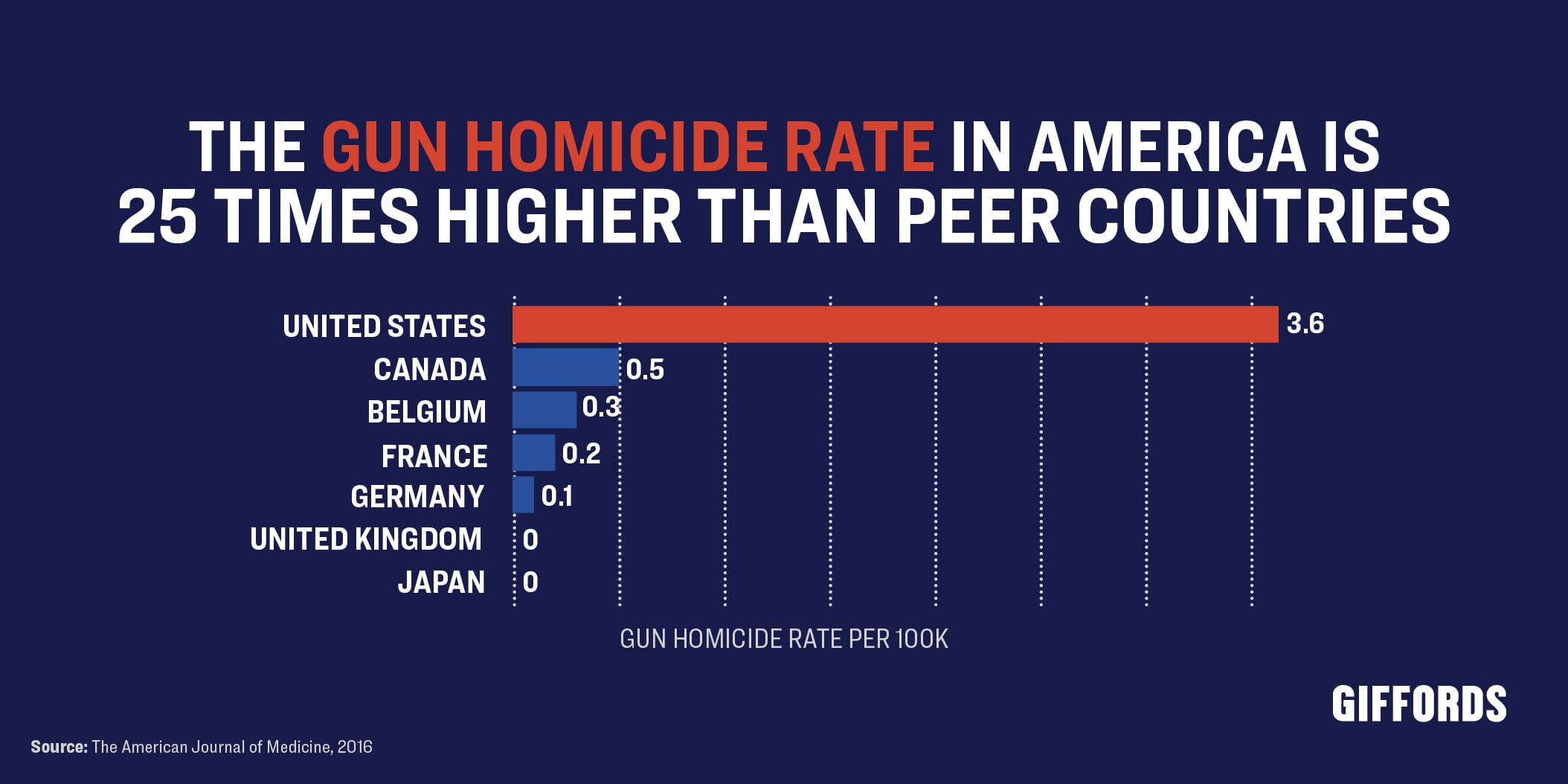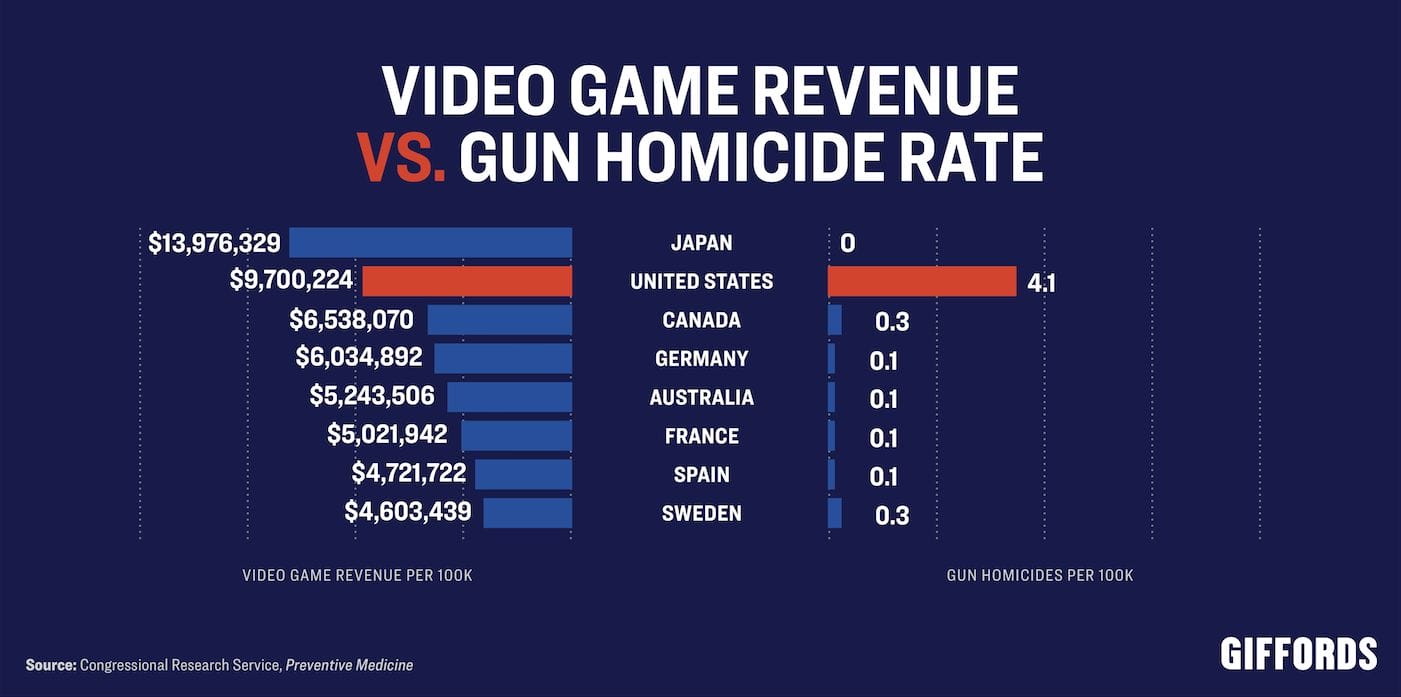
The GOP Blames Gun Violence on Everything Except Guns
Once again, the GOP falls back on NRA talking points, choosing gun lobby profits over the American people.
When it came down to a choice between the NRA and the American people, the American people never stood a chance.
Last week, Senator John Cornyn (R-TX) announced legislation that supposedly aimed at reducing mass shootings, carefully crafted so as not to anger the NRA. Cornyn’s legislation fails to include commonsense measures that enjoy broad public support, like universal background checks, extreme risk protection orders, or bans on large-capacity magazines.
Cornyn’s plan does nothing to address the real problem fueling our gun violence crisis: easy access to firearms. His plan’s focus on mental health and surveillance unnecessarily stigmatizes people with mental illness and fails to account for the fact that the scope of our nation’s gun violence crisis greatly exceeds mass shootings.
These tactics are straight from the NRA’s playbook. The NRA has never hesitated to throw its weight around to stop politicians it bought and paid for from supporting real gun safety reform. Cornyn has accepted donations totaling $210,000 from the gun lobby over the course of his political career; similarly, the NRA spent $30 million to elect President Trump in 2016.
When the president appeared to consider supporting universal background checks following a recent spate of mass shootings in Texas and Ohio, it only took one phone call from the NRA for him to reverse course. 89% of Americans support universal background checks, yet Trump let NRA Chief Executive Wayne LaPierre convince him the policy is a bad idea.
Cornyn’s plan is based on NRA talking points—not research, and not the will of the American people. Below, we debunk tired gun lobby talking points that mental illness and video games are to blame for a gun violence epidemic that claims more than 36,000 lives each year.
Blaming Mental Illness
Studies show that the vast majority of people with mental illness aren’t violent towards others, and that most violent behavior is due to factors other than mental illness. In one analysis, researchers found no relationship between a diagnosis of mental illness and an increased risk of firearm violence against others. But they did find that people who have access to firearms are 18 times more likely to threaten someone with a gun. Another study estimated that even if we could cure all mental illnesses, we would only reduce interpersonal violence by around 4%.
Psychiatrists and psychologists have also noted that because most people with mental illness will never become violent, using mental health diagnoses to predict mass shootings is nearly impossible. Researchers suggest that dangerous and risky behaviors such as alcohol misuse, interpersonal conflicts, and other financial and social stressors can be more predictive of an individual’s likelihood of perpetrating violence than mental health diagnoses.

If mental illness was responsible for gun violence, America would be expected to have higher rates of mental illness than other developed nations. But the United States doesn’t have significantly elevated rates of mental illness compared to other high income countries. What we do have is a gun homicide rate that’s 25 times higher than our peer nations, as well as a significantly higher rate of mass shootings.
Blaming Video Games
The gun lobby and GOP politicians have frequently (and recently) claimed that violent video games are linked to mass shootings and real-world violence. Yet multiple studies have found no evidence of this relationship. A report published by the Secret Service and the Education Department found that only a small fraction—just 12%—of perpetrators in more than three dozen school shootings showed an interest in violent video games. In fact, one researcher who examined the relationship between violence and video games found what he described as “ a whole lot of nothing.”

Additionally, a report from the nonpartisan Congressional Research Service found that other countries consume video games at similar—and in some cases higher—rates than the United States. But none of these countries have higher rates of gun violence. Clearly, violent video games don’t explain why the US has the highest rate of gun deaths and mass shootings among comparable high-income countries.
Expediting the Death Penalty
In August, following the mass shootings in El Paso and Dayton, President Trump asked the Justice Department to draft legislation that would expedite the death penalty for mass shooters. Senator Cornyn’s RESPONSE Act would speed up executions for mass murderers by restricting appeals in federal court.
Numerous academic studies have found that the death penalty doesn’t effectively deter crime. A panel of the National Academy of Sciences unanimously concluded that there was no credible evidence that the death penalty deters homicides. Mass shooters in particular are unlikely to be deterred by the death penalty because mass murderers seem to care more about causing harm than about their own well-being.
The majority of mass shootings end after the perpetrator dies by suicide or is killed by police. Of the ten deadliest mass shootings in modern US history, only two perpetrators survived the attack. Research also suggests that some mass shooters who do not die by suicide originally intended to kill themselves, but then changed their minds or were tackled and restrained at the last moment—suggesting that the death penalty would have little deterrent effect for these shooters.
Scapegoating mental illness and video games and expediting the death penalty won’t protect Americans from gun violence—but could well have dangerous repercussions for the very Americans that Trump and the GOP should be trying to protect.
Our country can’t take any more inaction or false promises. Watch and share this video if you agree: